Cultural exchange – Soft power connects Vietnamese to international friends
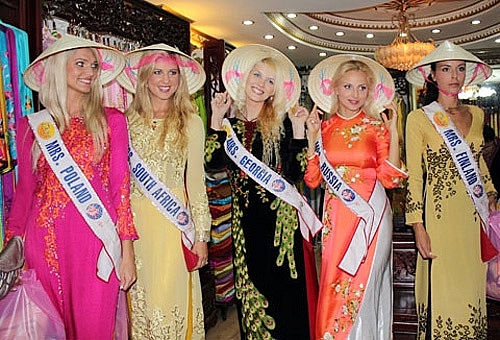 |
Six years ago, Politburo promulgated the Resolution No. 22-NQ/TW in international integration in April 4, 2013. This Resolution was a strategic document to unify the awareness of members in the Party and people about international integration.
Implementing the Resolution No. 22-NQ/TW, the Government established the Inter-agency Steering Committee for International Economic Integration included Intersectoral Steering Committee for International Integration in politics-defense-security, Intersectoral Steering Committee for International Economic Integration, Intersectoral Steering Committee on International Cultural, Social, Scientific, Technological and Educational Integration.
Cultural exchange is a bridge to link Vietnamese to international friends to cooperate for trading in the last many years. Many Vietnamese made all their efforts to promote Vietnamese image to abroad. Nguyen Vinh Quang, former Director of Department of China – Northeast Asian Affairs, Central Committee’s Commission for External Relations who was known as the veteran and incisive diplomat as well as for his passion for culture. He gave his attempts to bring Vietnamese ideas and culture to international friends.
Soft power
According to Quang, to increase the understanding between nations, besides enlarging the people diplomacy’s activities, cultural exchange was an important soft power to be along with.
Quang said, “We advocated the integration in many years. Thankfully, our policies have more fruitfulness. Integration not only pushed some aspect to the world, but in reality, one aspect affects other aspects to let other countries in the world know about Vietnam comprehensively and truthfully. We are now having many friends and partners. We successfully draw a new Vietnam’s image after the wars. In the past, Vietnam was learned from the bitter wars by most of people in the world. This number of people became less and now, people see Vietnam as a peaceful, developed and potential country to cooperate because of our integration.”
He also demonstrated that “cultural integration” was promoted forcefully and more effectively recently. It do not means the cultural integration was not deployed previously, however, economic integration and politic integration were more concentrated instead.
“Nations in the world understand each other mostly by cultural exchange. For example, after the recent summit of Kim and Trump, not only stories about two leaders, but also information and photos of Vietnamese cuisine, Hanoi streets, Ao Dai and Vietnamese friendly smile were in newspapers and report TV programs. So, foreign people embellished our image. That proved one field influence other fields, foreign affairs to culture and to tourism… It is one method of cultural integration,” said Quang.
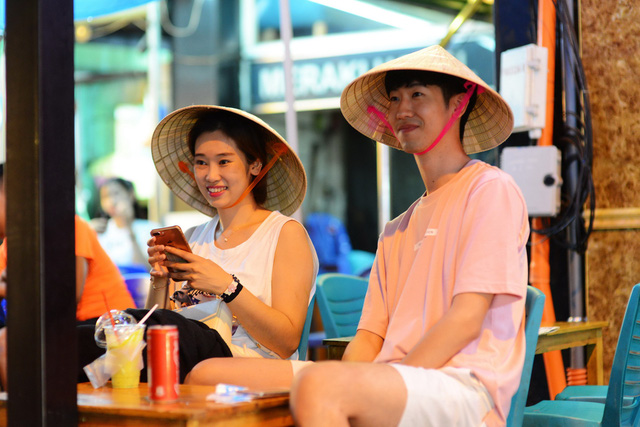 |
He considered cultural field had some wise and effective activities. Especially, a Hollywood movie was shot in Vietnam which gave reputation to Vietnam; cooperating with foreign film studios (e.g from South Korea) to produce a high quality arts not for audiences only, but for promoting our culture; the impressive art festivals was a connection between Vietnam and international friends.
Cultural exchange is stronger than diplomatic words
Quang thought cultural exchange had a vital role in deepening the knowledge between Vietnamese people and international friends.
“Although I am a diplomat, I pay more attention to cultural exchange. Cultural exchange until now is a network of people from different nations. In my opinion, the diplomat’s voice is not sufficient as the voice of cultural exchange. Thus, I constantly regard the importance of cultural exchange. The construction of the friendship based on understanding and sympathizing each other which culture do better than diplomacy,” he said.
If cross-cultural exchange have been occurred among two cultures, it would contribute significantly to the relation of two countries. Quang told a story in 1992 when he was delegated in Beijing. At that time, Vietnam and China had scarcely normalized the relation. He learned that Chinese less knew about Vietnamese culture.
“I surveyed several theaters in Beijing, they answered they did not know more about Vietnam, except some interesting films and books in the resistance war against America’s time,” said Quang.
“I recognized developing the bilateral relation need the cultural exchange’s extension. Therefore, I and a Chinese professor created a program and invited Chinese audience to visit Vietnam by musical way, particularly, expressing Vietnamese folk music such as Cheo, Quan Ho, Xoan singing, Cai Luong, Vietnamese opera and Central Highland’s Gong…
Our program was broadcasted in Radio Beijing, pided in 3 sessions, 150 minutes per each. Many Chinese came to the Embassy to appreciate my work because they had listened interesting Vietnamese music. Then, delegation of Dalian People’s Radio Station asked me to coordinate for the same music program and I accepted. I thought those contributions actively expanded the people’s understanding between two country through culture,” he added.
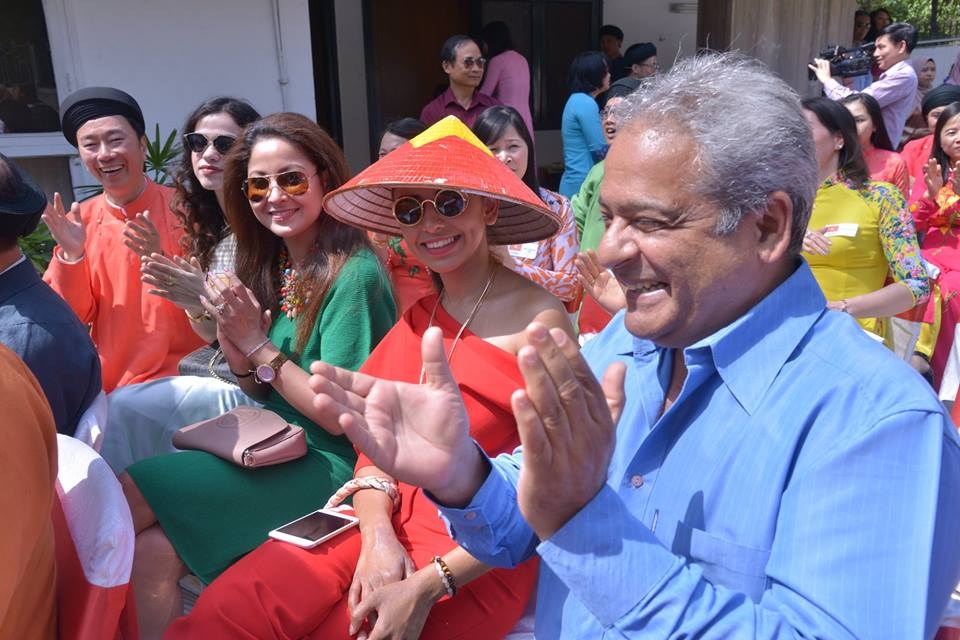 |
National culture builds a powerful national reputation
According to Quang, though diplomacy mentioned the value of cultural integration, nevertheless, diplomats, especially the young generation concentrated on studying foreign language and international relations. There are less people being interested in the cultures.
“They need to comprehend their national culture when working in diplomacy, particularly when in Vietnamese representative office in foreign countries. They should self-study or are obligated to study the Vietnamese culture. They also have better to have knowledge of the host country’s culture. Therefore, they have awareness to receive the essence of the host country’s culture. Cultural counselors and cultural attaches do not lack of knowledge when in the mission of cultural diplomat,” Quang emphasized.
The diplomat suggested the foreign diplomats in Vietnam should be approached Vietnamese cultures. “We should arrange visits to local sights and historical monuments for diplomatic delegations. We, even, hail provinces to sponsor to diplomatic delegations to boost tourism and trade by inviting to their regions and showing the strong points of tourism and trade.” If these activities were deployed, those promoted both trade and tourism to ask for investment to specific projects of provinces. Moreover, cultural aspect and diplomatic field should “shake hands” to hold traditional art performances of Vietnam (e.g water puppetry, traditional music concert…) for diplomatic delegations as Quang’s opinion
Finally, Quang presented his idea of developing cultural industry for national reputation. We should refer some countries such as South Korea or China which propagandized their culture successfully to the world.
Cultural industry not only expanded the culture, but supported to economics also. For example, China sold its film for several dozen million USD or US cultural industry appropriated 30% its GDP or 15% Korean GDP was of its cultural industry. Furthermore, we should extend the cooperated relation to the country which have cultural and trading strength as South Korea to have cultural productions combining with economics./.
Translated by Thanh Van
Recommended
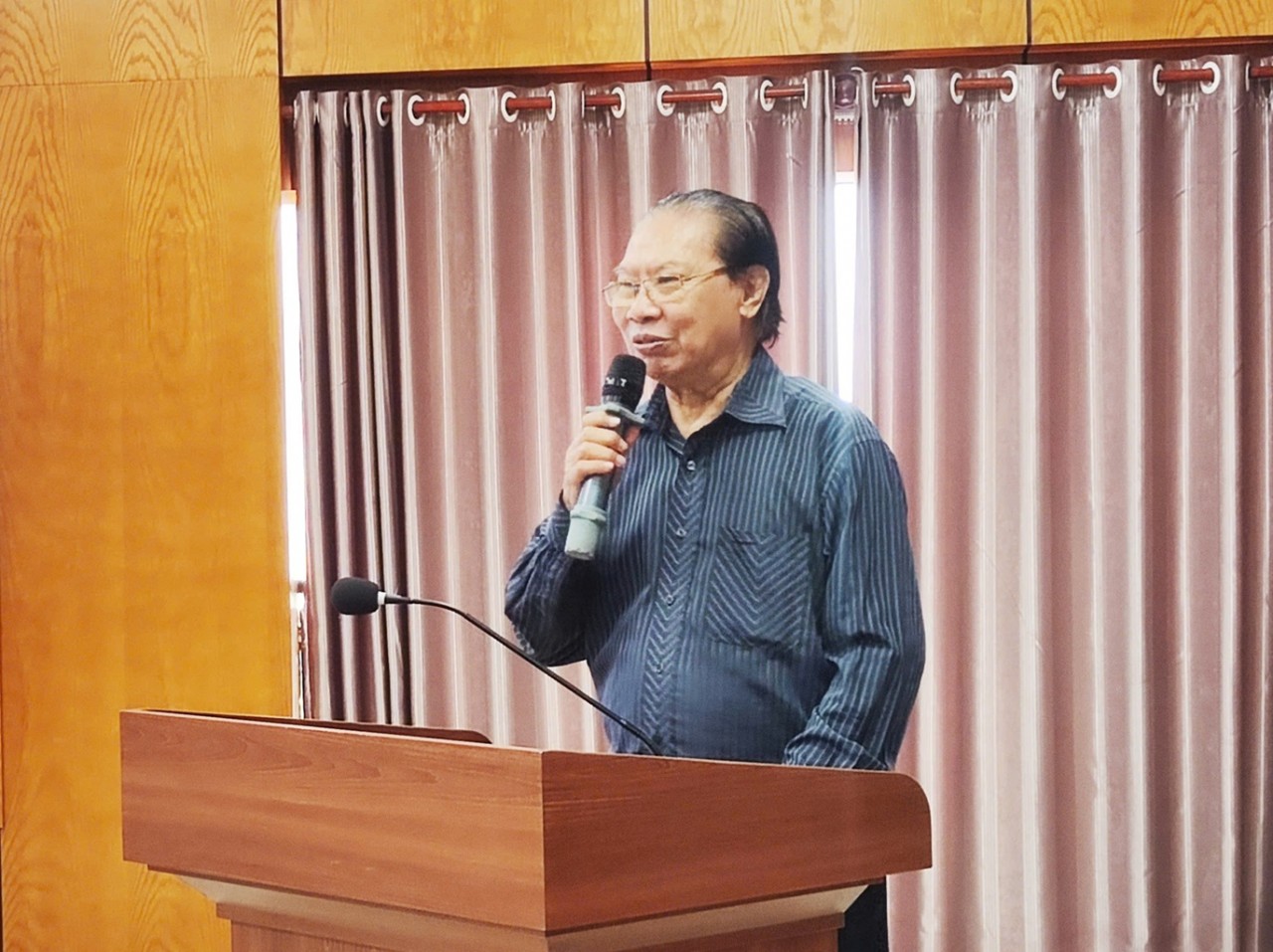 Focus
Focus
Vietnam Esperanto Association Promotes Training to Develop Movement
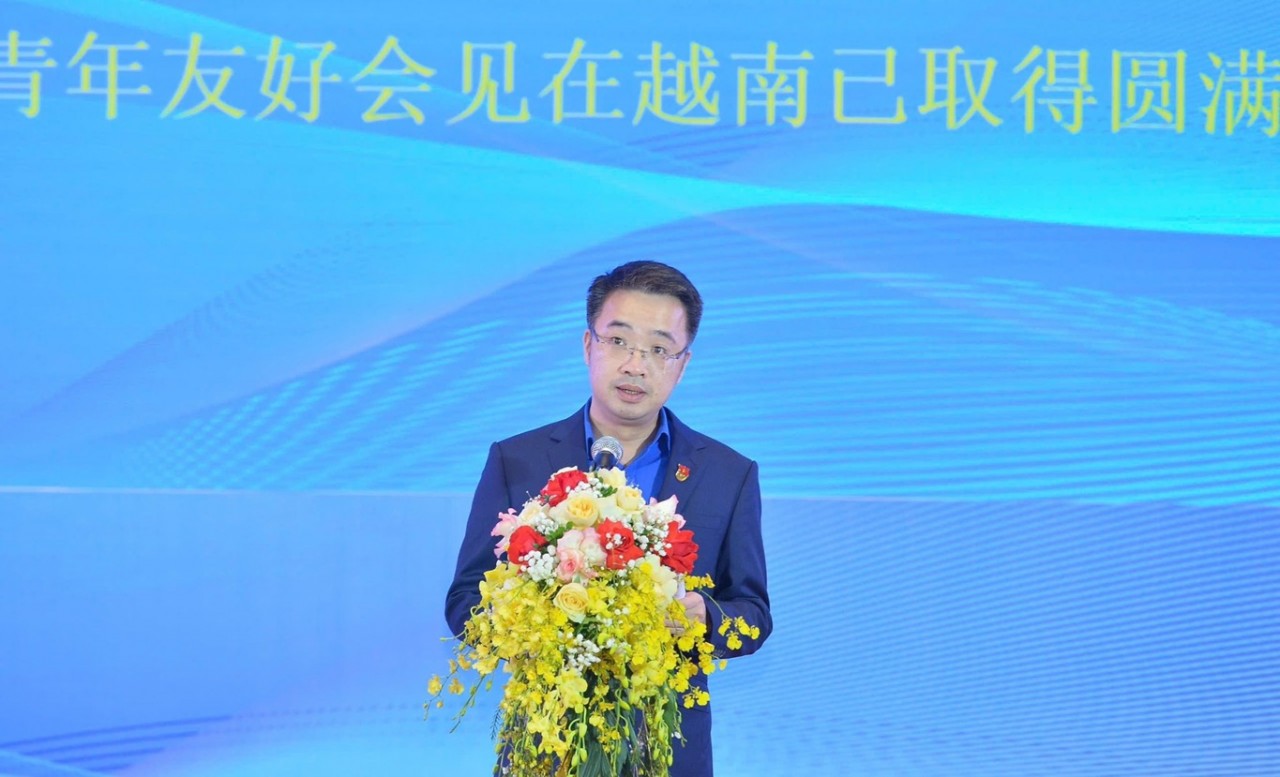 Focus
Focus
Vietnamese, Chinese Youth Extend the Bridge of riendship
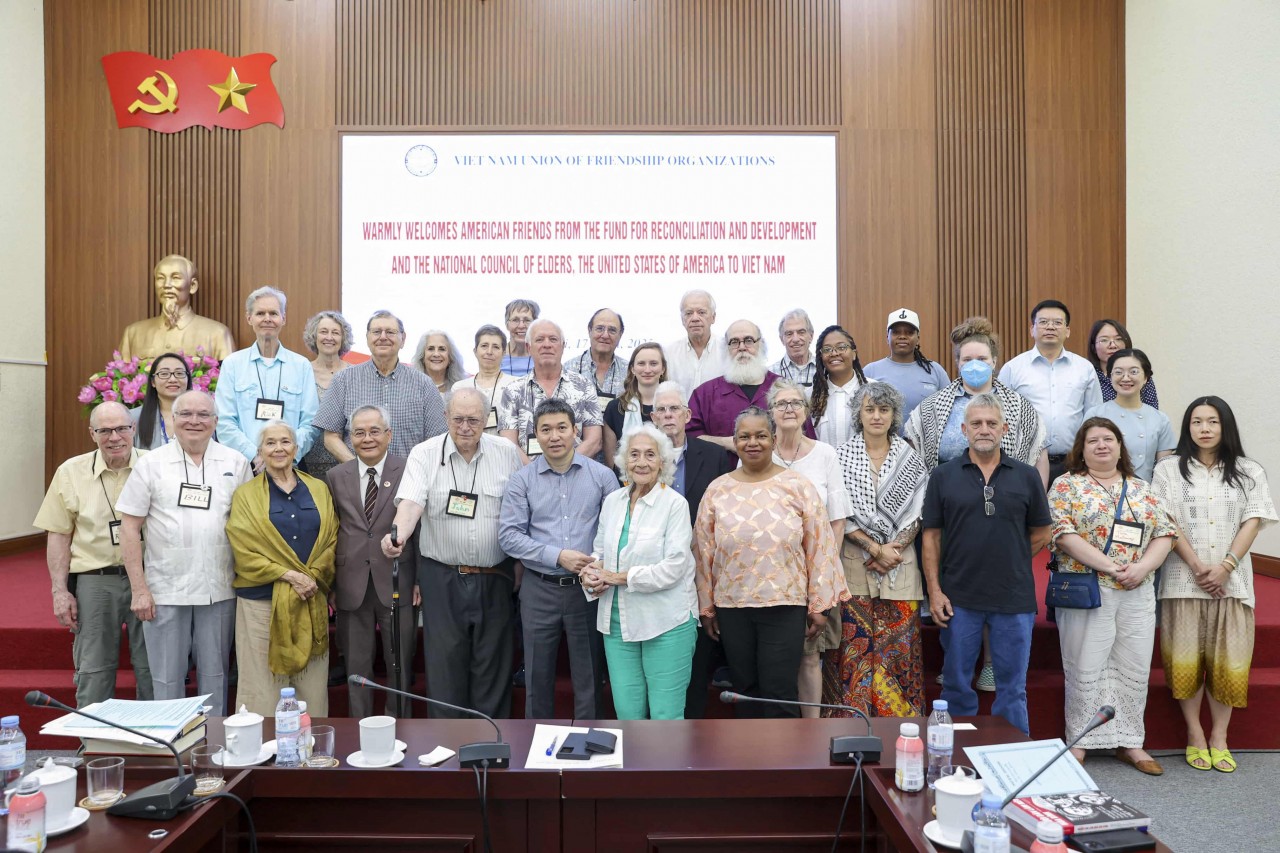 Friendship
Friendship
Spirit of Peace and Cooperation: Precious Asset of Vietnamese and US Peoples
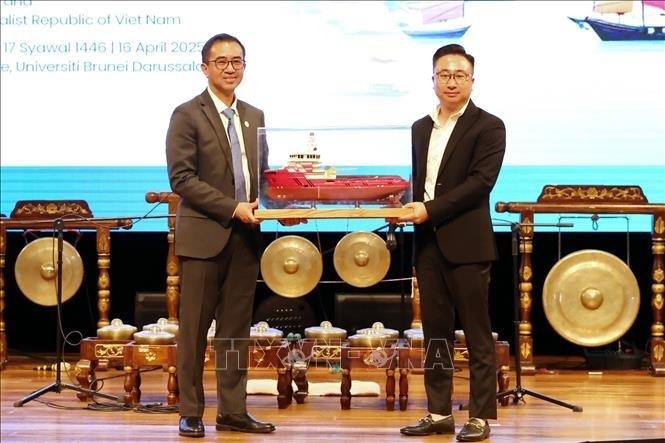 Friendship
Friendship
Promote Cultural and Educational Exchanges Between Vietnam and Brunei
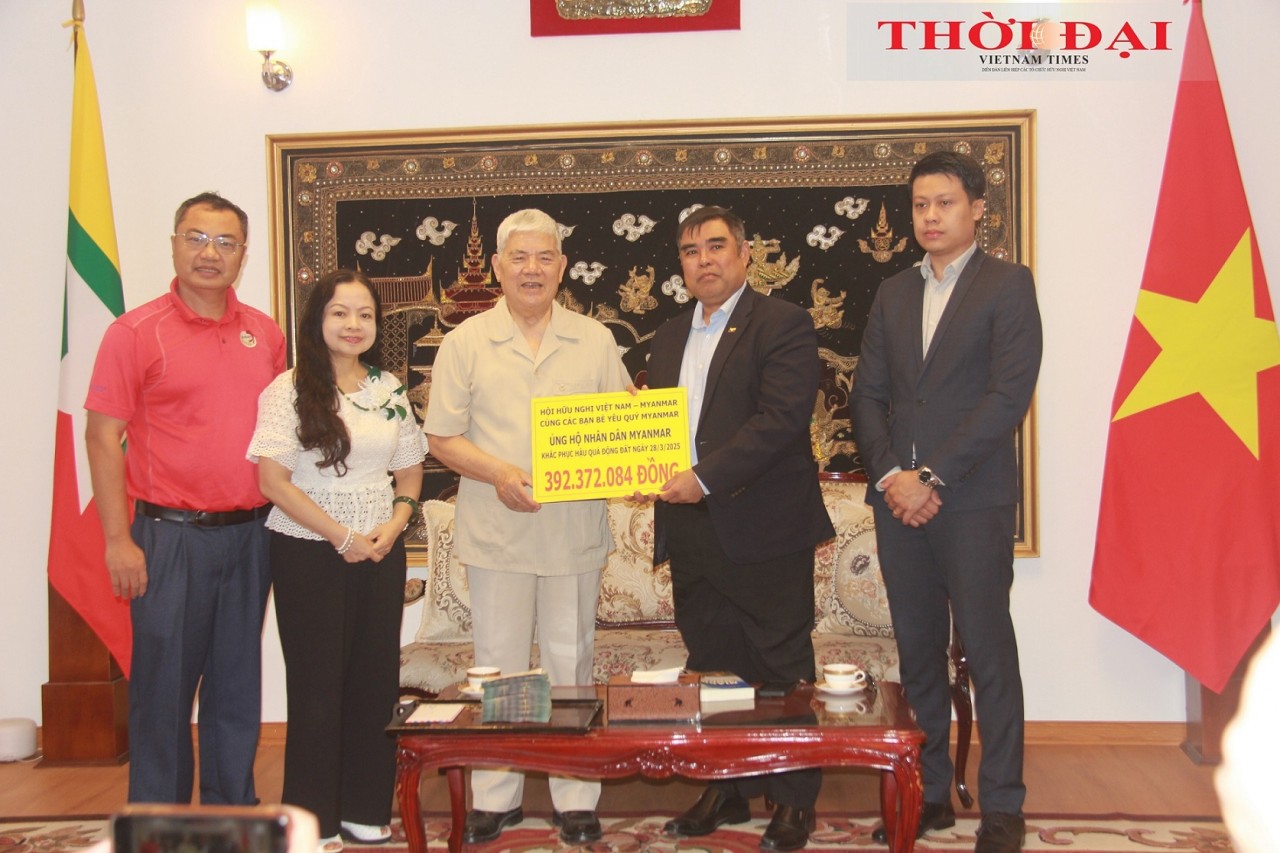 Friendship
Friendship
Nearly VND 400 million Donated to Support Myanmar Deal with Earthquake Consequences
 Friendship
Friendship
Vietnam, France to Boost Local-level Cooperation
 Friendship
Friendship
Vietnam - Cuba Friendship Exchange Marks 64th Anniversary of Giron Victory
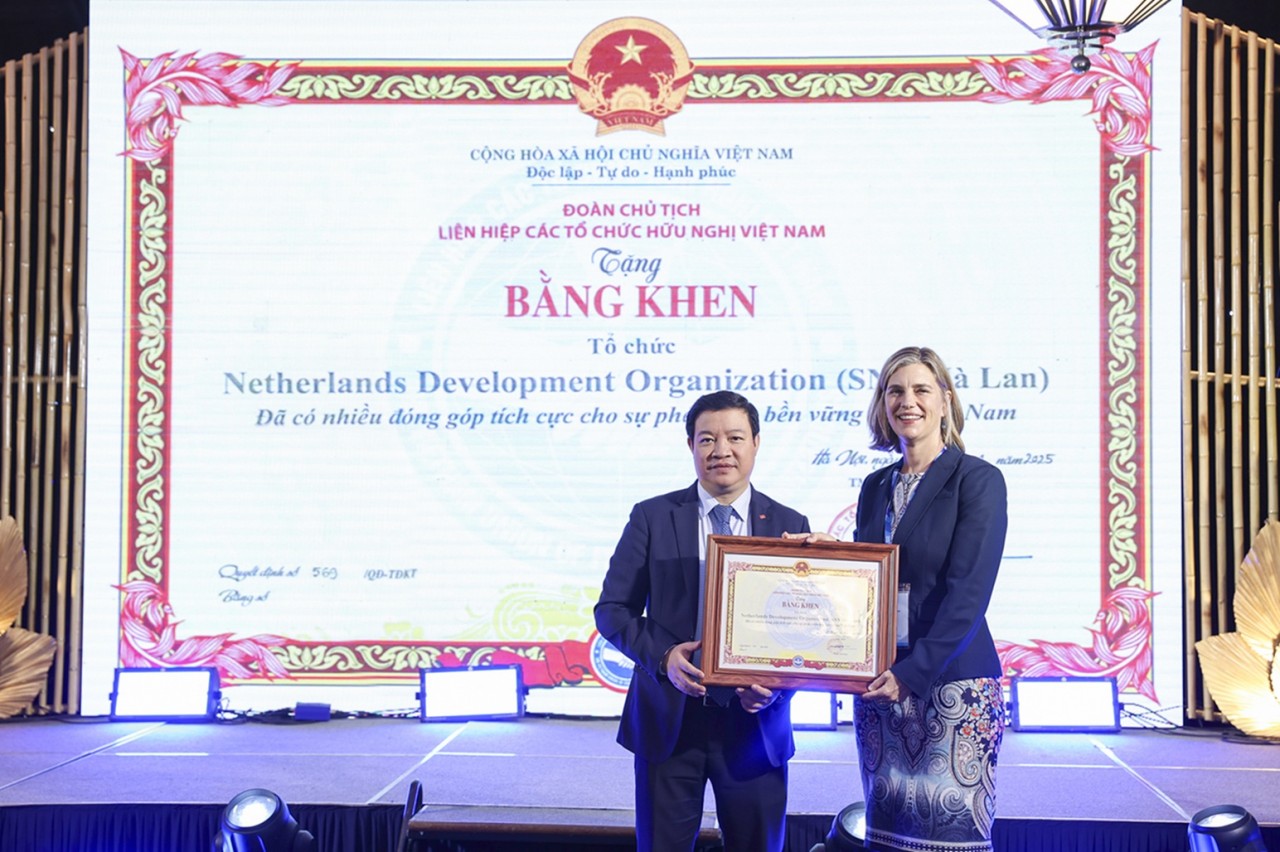 Focus
Focus
